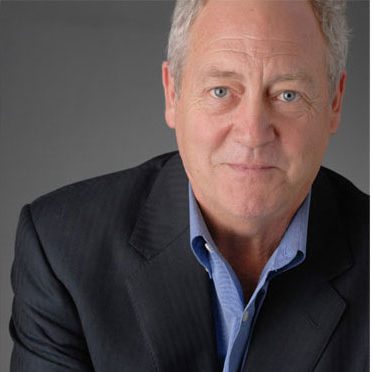Shedding light on key green issues
Published: May 12, 2008
By: Patrick Moore
Published: May 12, 2008
Since leaving Greenpeace I have been called many names by my former colleagues — a fact that the National Post’s May 1 report (“‘Eco-Judas’ battles on”) makes clear. Not a single sentence in the lengthy article discusses the merits of the issues that I and my colleagues at Greenspirit Strategies support. Instead, the article provides a platform for every detractor to vent his or her empty rhetoric. I am variously called an eco-Judas, turncoat, green-basher, greenwasher, corporate shill, flip-flopper, sellout and finally, Darth Vader.
Name-calling, otherwise known as an ad hominem attack, sheds light on nothing other than the accuser’s lack of knowledge.
But my personal mission, as well as the mission of the Greenspirit Strategies organization, is to shed light directly on some key environmental issues. I admit this may offend my former colleagues at Greenpeace, who reject nuclear power, genetic enhancement, many chemicals and plastics, industrial forestry and salmon aquaculture — all of which have beneficial uses.
Given the fact there are 6.5 billion of us on the planet needing food, energy and materials daily, what sort of environmentalist would I be if I didn’t speak out on issues where Greenpeace, the group I helped found and run for many years, has got it so wrong?
Consider chlorine: The Post quotes me as stating that the reason I oppose Greenpeace’s call for a global ban on chlorine is that “you can’t ban an element.” This fails to reflect the most important points. At the time Greenpeace was adopting this policy I pointed out to them that adding chlorine to drinking water was the biggest advance in the history of public health. I also reminded them that the majority of our pharmaceuticals are based on chlorine chemistry. And for good measure I suggested that the best way to deliver the slightly chlorinated drinking water to the general public was in a PVC (polyvinyl chloride) pipe. They behaved as if these were minor exceptions to the general rule that chlorine should be banned worldwide, so I had to leave.
On forests and forestry: Greenpeace is basically anti-forestry. Cutting fewer trees means using less wood. Using less wood means using more steel, concrete and plastic, all of which require a lot of energy, usually fossil fuels, to produce. Wood, which is the most abundant renewable material on Earth, is made with solar energy in the forest. We in Greenspirit believe the correct policy is to grow more trees and use more wood, not less. This pulls more carbon dioxide out of the atmosphere (wood is about 50% carbon) and reduces the amount going into the atmosphere by using wood in place of non-renewable materials.
On genetic modification (GM): Greenpeace and its allies conjure up some invisible poison in GM foods even though there is not a shred of evidence of harm to health or the environment. We believe that our knowledge of genetic science should be used to improve the nutrition in our food, the effectiveness of our medicines and to reduce the environmental impacts of agriculture. Genetically modified rice could virtually end nutrient deficiency overnight, but Greenpeace and company have successfully blocked its introduction for seven years. Meanwhile half a million people, mostly children, go blind every year from Vitamin A deficiency even though the cure, Golden Rice, has already been invented.
On nuclear energy: The Post report makes it seem like George Bush and I are the only people on Earth that support it. In fact 21 countries produce 15% or more of their electricity with nuclear energy. Ontario, which gets half its electricity from nuclear, has made the decision to build new nuclear plants and both Alberta and New Brunswick are seriously considering building more. France produces 80% of its electricity with nuclear, has reasonable electricity rates and recycles its used nuclear fuel. Sweden gets 50% of its power from nuclear and the rest from hydro, the other technology that can provide continuous power with virtually no emissions. That’s why Sweden has the lowest CO2 emissions per capita of any country in Western Europe, followed closely by France. We believe that nuclear energy is a key technology to replace fossil fuels for the production of electricity, hydrogen, heat and the desalinization of sea water.
We do not think these reasoned positions justify the use of name-calling and derision. They deserve thoughtful, on-the-topic discussion and debate. And we do not think Greenpeace is our enemy, as the Post report implies. We simply think Greenpeace is wrong in using misinformation and fear to promote an agenda that we believe is largely off the mark.

